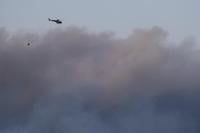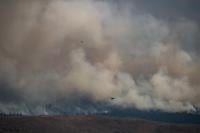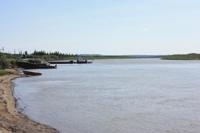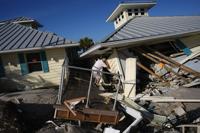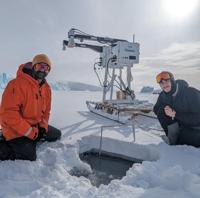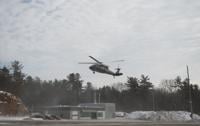HALIFAX - Nova Scotia is planning to replace its fleet of four helicopter water bombers as it prepares to battle future wildfires in woodlands surrounding its cities and towns.
Natural Resources Minister Tory Rushton said in an interview Friday the Airbus H-125s were effective in fighting the wildfires in late May that burned 10 square kilometres in the western suburbs of Halifax and 235 square kilometres in Shelburne County.
During those blazes, about 200 homes were destroyed and about 22,000 people were evacuated after a heat dome settled over the province and strong winds fed the flames.
The cabinet minister says the replacement program for the helicopters is slated to take place over the next four years, with a price that's yet to be negotiated.
However, the federal and provincial governments have already committed about $12.8 million each for the purchase of wildfire equipment and training between 2022 and 2027.
During wildfires, the helicopters are used to scoop and dump water both from the ocean and from small lakes and water sources close to the wildfires.
The current fleet of helicopters, purchased in 2016, are also used to support search and rescue efforts, transport people and equipment during emergencies and conduct aerial surveillance.
The province has arrangements with other provinces to share their fixed-wing water bombers when needed, but it does not own a fixed-wing aircraft to fight fires.
Rushton said in an interview Friday that discussions about the possible purchase of a firefighting airplane are still underway as his officials review the 2023 wildfire season — the most severe on record.
"We're having a high-level conversation right now, with the debriefing of our wildfire season that's taking place," he said.
The province says the current fleet of helicopters can respond to any location in the province within 90 minutes from their base in Shubenacadie.
During wildfire season, the aircraft are placed around the province based on the fire risks, and this can reduce response time to about 30 minutes.
The province is expected to produce a report on lessons learned from the fires before the spring.
This report by şĂÉ«tvwas first published Dec. 15, 2023.


